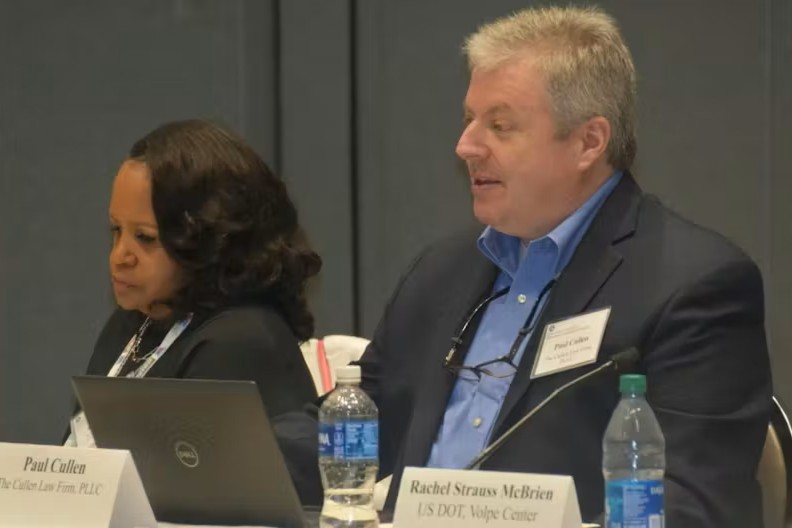Introduction
The Federal Motor Carrier Safety Administration (FMCSA) Truck Leasing Task Force has urged Congress to ban carrier-controlled lease-purchase agreements. Their report highlights the exploitative nature of these agreements, emphasizing the undue financial and operational control exerted by carriers over drivers. Given the significant implications for independent truck operators and the broader transportation industry, we delve into the core findings, industry responses, and potential regulatory changes.
Understanding Carrier-Controlled Lease-Purchase Agreements
What Are Lease-Purchase Agreements?
Lease-purchase agreements are contracts where truck drivers lease a commercial vehicle with an option to purchase it over time. These agreements often involve high-risk financial commitments, where the driver assumes ownership of the vehicle after making structured payments. While theoretically offering drivers a path to independent ownership, the reality is frequently starkly different.
Why the FMCSA Task Force Opposes These Agreements
The FMCSA Task Force argues that lease-purchase programs controlled by carriers are inherently flawed and often exploitative. Their report identifies the following concerns:
- Conflicted Control – Carriers dictate drivers’ earnings, routes, and working conditions while simultaneously holding financial leverage through the lease.
- Predatory Financial Terms – Many agreements include hidden fees, excessive interest rates, and balloon payments that make it nearly impossible for drivers to achieve true ownership.
- Lack of Legal Remedies – Drivers often lack legal recourse when carriers modify terms, reduce miles, or impose fees that make repayment unsustainable.
Key Findings from the FMCSA Task Force Report
Lease-Purchase Agreements as “Tools of Fraud”
The FMCSA report unequivocally states that lease-purchase agreements under carrier control serve as mechanisms for fraud, trapping drivers in financially unviable situations. The report details cases where:
- Drivers paid tens of thousands of dollars toward vehicle ownership, only to be dismissed before completing their payments.
- Some carriers intentionally limited work opportunities, reducing drivers’ earnings and causing them to default on agreements.
- There was little to no transparency regarding maintenance costs, insurance fees, and administrative charges, leading to unexpected financial burdens.
The Call for a Nationwide Ban
The Task Force unanimously recommended a congressional ban on lease-purchase programs where carriers simultaneously control the vehicle lease and a driver’s operational conditions. Their reasoning includes:
- Protecting drivers from financial manipulation.
- Encouraging fair ownership pathways outside of carrier control.
- Promoting stability in the trucking industry by reducing driver turnover caused by financial instability.
Alternative Recommendation: Regulatory Overhaul
If an outright ban is not feasible, the Task Force suggests rigorous regulatory reforms, including:
- Strict Transparency Requirements – Mandating clear contract disclosures regarding costs, fees, and penalties.
- Independent Lease Financing – Prohibiting carriers from acting as both financiers and operational controllers.
- Enhanced Legal Protections – Ensuring drivers have legal avenues to contest unfair contract modifications or excessive deductions.
Industry Response and Counterarguments
Advocacy for Lease-Purchase Programs
While the FMCSA Task Force advocates for banning these agreements, some industry leaders argue that lease-purchase programs can be beneficial.
David Heller, VP of Government Affairs at the Truckload Carriers Association (TCA), argues that:
- Successful Programs Exist – Some lease-purchase programs genuinely support drivers in becoming independent owners.
- Freedom of Choice – Banning these agreements outright may remove an accessible path to truck ownership for many drivers.
Addressing Industry Concerns
While some programs may be structured fairly, the overwhelming evidence of exploitation necessitates reform. Advocates for fair leasing argue that:
- Independent financing should be the standard, preventing carriers from leveraging control over both the lease and the driver’s workload.
- Greater oversight would allow legitimate lease-purchase agreements to continue while eliminating predatory practices.
Future Implications for Trucking Regulations
Potential Legislative Action
Congress now faces a critical decision:
- A full ban, which would eliminate carrier-controlled lease-purchase agreements entirely.
- A regulatory overhaul, imposing stricter terms to prevent abuse while allowing fair programs to operate.
Expected Industry Impact
Regardless of the outcome, significant changes are likely:
- Increase in third-party financing options – More truckers may turn to banks or independent leasing firms.
- Shift toward traditional employment – More drivers may opt for company employment over independent contracting.
- Greater legal scrutiny – Carriers could face increased litigation if found engaging in predatory leasing practices.
Conclusion
The FMCSA Task Force’s recommendation to ban carrier-controlled lease-purchase agreements underscores a major issue within the trucking industry. These agreements frequently exploit drivers, leading to financial instability and job insecurity. While some industry voices advocate for maintaining lease-purchase programs, the evidence overwhelmingly supports the need for a ban or comprehensive regulatory reforms.
Moving forward, policymakers must prioritize:
- Protecting drivers from predatory leasing practices.
- Ensuring fair pathways to truck ownership.
- Strengthening regulatory oversight to hold carriers accountable.
By addressing these concerns, the industry can create a more equitable and sustainable system for truck drivers nationwide.

